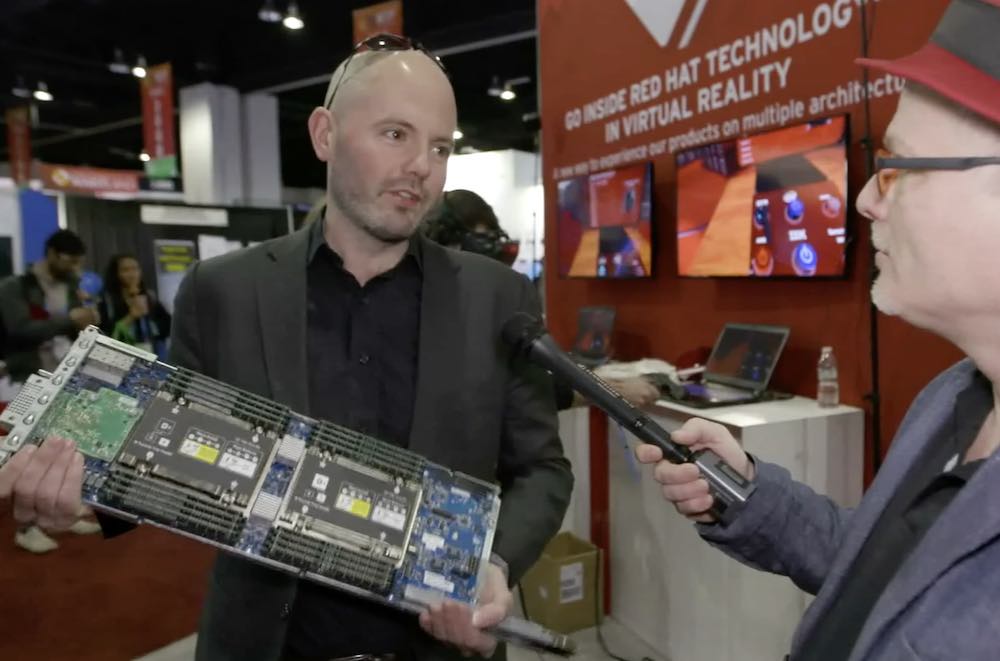 In this video from SC17, Jon Masters from Red Hat describes the company’s Multi-Architecture HPC capabilities, including the new ARM-powered Apollo 70 server from HPE.
In this video from SC17, Jon Masters from Red Hat describes the company’s Multi-Architecture HPC capabilities, including the new ARM-powered Apollo 70 server from HPE.
At SC17, you will also have an opportunity to see the power and flexibility of Red Hat Enterprise Linux across multiple architectures, including Arm v8-A, x86_64 and IBM POWER Little Endian, by way of a virtual reality experience known as the Game of Life.
Red Hat demonstrations at SC17:
- Emerging HPC technologies – Building supercomputers out of commodity components has prominent trend during the past two decades. But recently, the definition of “commodity“ in HPC has been morphing. Learn how Red Hat is enabling new hardware architectures, supporting various acceleration technologies and cache-coherent interconnects, and driving open innovation and standardization in high-performance computing via collaborative community efforts like the OpenHPC Project and industry partnerships like the one with IBM, Mellanox Technologies, and NVIDIA in support of CORAL initiative.
- Proven HPC infrastructure – Red Hat Enterprise Linux provides the foundation for many HPC software stacks and is available across multiple hardware architectures. It is at the core of Red Hat OpenStack Platform and Red Hat Openshift, both of which are part of many HPC environments. Large supercomputing sites like Oak Ridge National Laboratory use Red Hat OpenStack Platform to make their systems more accessible. Red Hat OpenShift Container Platform and Red Hat Ansible Automation are also compelling for HPC as they can enable better application portability and system provisioning and automation.
- Scale-out storage for HPC workloads – Software-defined solutions like Red Hat Gluster Storage and Red Hat Ceph Storage can provide cost-effective alternatives to traditional storage to support the modernization of HPC applications by adopting containers with container native storage and the ability to handle many types of HPC workloads. This week we announced Red Hat Ceph Storage 3. At SuperComputing17, you can learn more about the latest version of our massively scalable software-defined storage solution, including full support of CephFS.



